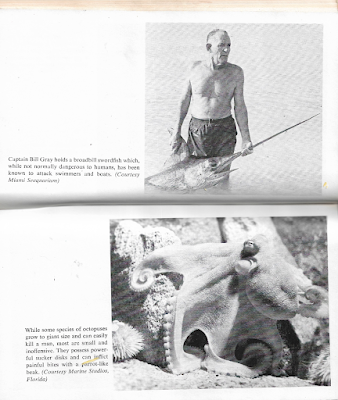The kid called Dicko never knew when to keep his mouth shut. "What she needs to get is one of the Big Reds grab 'er by the tits and she'll forget about what she came for," the kid was saying as Cullen pulled himself onto the stool. "Then she'll soon forget about savin' the kangaroo."
Dicko's brother Benny chuckled a bit for his kin's sake, but none of the other shooters and graziers propped over their drinks bothered to look up. Like Cullen, they didn't appreciate talk about the Winters woman or the problem unless it was important, and no one among them could remember the kid Dicko ever saying anything that qualified.
Have a drink, mate? Have a fight, mate? There's nothing else out here, except the killing. Killing roos, killing boars, killing anything that'll turn a profit and sometimes just for the hell of it anyways.
Killing anything that gets in your way. But as we're about to learn, this killer instinct extends from the beasts of the Outback to the warehouses of Sydney and clear across the ocean to the New York mob and Madison Avenue. And now author Peter Brennan has summoned THE RAZORBACK, and nothing on two or four legs is safe!
Thicko Dicko and his brother Benny are two of the most hateable yobbos you'd ever be unfortunate enough to meet, but they're just the bottom rung of a long and crooked ladder that reaches near all the way to the top. Their atavistic sadism as they "butt shoot" scores of kangaroos (for easier butchery come morning, as the animals won't expire prematurely, stiffening in rigor mortis) is stoked by the simple logic of business, and their cruelty comes in handy when the bosses need a little problem solving to cover up some dirty business that the scabrous Baker boys won't ever see a penny from.
Author Brennan makes ready comparison between the struggle for survival for animals and human beings, whether we're on the razor's edge in the unforgiving Outback or navigating the perhaps equally dangerous modern "civilized" world. Death is sometimes quick, sometimes slow, but when it comes to Brennan's titular monster, a true freak of nature, it's all there is. The razorback, we're informed, only becomes more enraged the more it kills, and its gargantuan body hosts a litany of parasites - maggots, botflies, lung worm, stomach worm, tapeworm, plus unidentified creatures incubating under its skin and clouding up its eyes - that drive it further into painful rage.
This thrice-cursed halfbreed cross shouldn't exist, but it does, and that's everybody's problem. It's hard enough for the sheep graziers keeping the regular boars out of their wells (the only water for miles around) and the roos from devouring every last shoot of growth meant for their sheep. Now the razorback threatens to ruin them totally. Dicko and Benny's lazy method of "butt shooting" doesn't help either, as crippled roos are left out overnight for the pigs to feast upon, drawing even more trouble upon the beleaguered ranchers.
You may have caught on that nature's casual indifference to human affairs looms large here. The men (and it is men, in this world) who kill so easily, whether with guns and axes or with a word and a nod, are not prepared to be on the other side of the equation. Brennan gives us some savage instances of this turnabout, and here he maybe belabors the point a little, as we sit through perhaps just a little too much back and forth over the crime syndicate that owns the Petpak pet food company going about its dirty deeds. Come halfway through the story we realize there's about a half dozen subplots going over men named Wallace and Scully and Briggs and Wagstaff and Grabow ... somewhere we lose the sublime focus of the Outback scenery. Brennan zips us in tight for the ending though, as the final fifty pages trim the fat and knock off characters left and right. This is what we came for! The slaughter!


Above, the Fontana edition. Contra the synopsis, Gene Taylor is a New York adman and not a lawyer, by the way. Brennan works fast and tight with his characters, laying their neuroses bare under the hot Outback sun and fraying their nerves to the breaking point. Everybody's got an angle, and questions of heroics and justice are quickly abandoned for the overriding fact of survival ... although we might have some room for a little bit of simple, primal vengeance before the final curtain. |
| Some movie tie-in editions |
Readers may be more familiar with the stylish film adaptation of this story from 1984, which ditches most of the crime angle to focus on the Outback action. If you haven't seen it, well, it's pretty damn good!
Some pig ... Brennan's freak of nature earns a nasty 3/4 rating for engrossing brutality amidst some loopy plotting.
Jovian Publications, 1981





































































